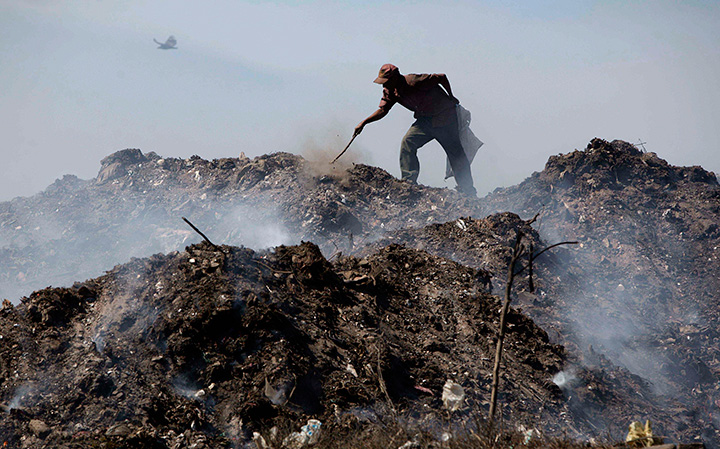Nicaragua is set to join the Paris climate agreement in a move that leaves the United States and Syria as the only nations outside the global pact.

According to an official statement and comments from Vice President Rosario Murillo, Nicaragua has already presented the relevant documents at the United Nations.
Murillo, who is also first lady, said on local radio on Monday: “It is the only instrument we have in the world that allows the unity of intentions and efforts to face up to climate change and natural disasters.”
READ MORE: White House denies reports that Donald Trump might keep U.S. in Paris climate deal
U.S. President Donald Trump said in June he would withdraw the United States from the accord, and Nicaragua’s decision to enter the pact means only two countries will now be outside it – the world’s No. 1 economy and war-torn Syria.
WATCH: U.S. Secretary of State Rex Tillerson said on Sunday the United States could remain in the Paris climate accord “under the right conditions.

Nicaragua, a poor Central American nation that is often threatened by hurricanes, was the only nation to reject the agreement in 2015, and has argued for far more drastic action to limit rising temperatures.

Get breaking National news
The Paris accord, agreed by nearly 200 countries two years ago, seeks to limit planetary warming by curbing global emissions of carbon dioxide and other gases that scientists believe drive global warming.
The administration of former U.S. President Barack Obama had pledged deep emissions cuts as part of the deal, but his successor, Trump, has said the accord would cost America trillions of dollars, kill jobs, and hinder the oil, gas, coal and manufacturing industries.
WATCH: Backlash grows against Trump’s decision to leave Paris climate accord

Island nation Fiji will host the next round of U.N. climate talks from Nov. 6-17 in Bonn, Germany, where environment ministers from around the world will work on a set of international guidelines for the Paris accord.
READ MORE: Donald Trump’s withdrawal of U.S. from Paris climate agreement widely panned
The latest round of negotiations take place after a string of powerful hurricanes ravaged Caribbean island nations and caused billions of dollars in damage along the Texas and Florida coastlines.
Climate scientists have said warmer air and water resulting from climate change may have contributed to the severity of the storms. The U.S. Environmental Protection Agency has disputed such claims as an attempt to “politicize” natural disasters.







Comments